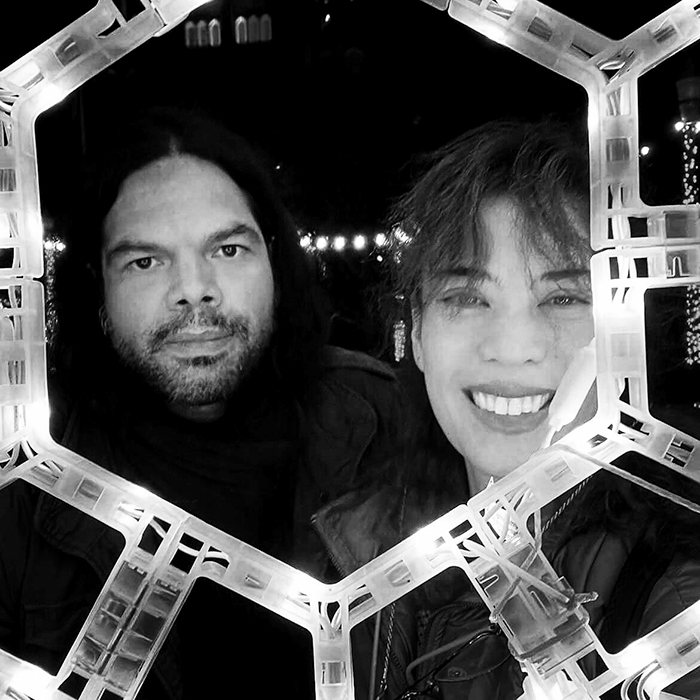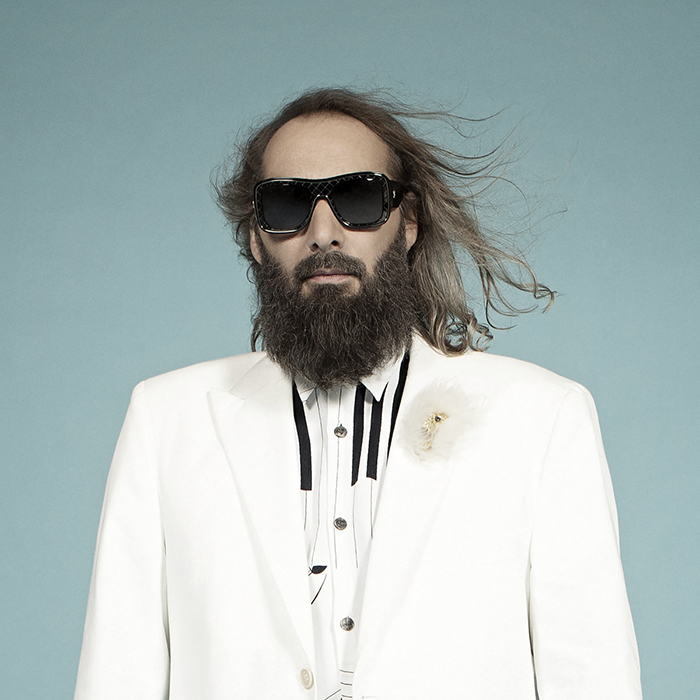In conversation with Richard Fearless
By Tamara Arden
With a long lineage of music appreciation from his surrounds and family, Richard Fearless has become a tastemaker in the industry, leading individuals to his authentic point of view. Here we discuss his spaces, the current artist’s persona, switching off to trends and what it takes to create in this climate.
Your parents have an interesting story in which they fled the troubles of Belfast to Zambia with their record collection and not much else. Do you remember which records you actively chose to listen to growing up and how that will be passed on to your next generation?
The first record I remember being played was ‘Pata Pata’ by Miriam Makeba – a big house favourite. There was a lot of Congolese and Zambian music plus my father’s Jazz records and Lee Morgan, they were always on heavy rotation.
Your studio is located in a converted shipping container facing the waterfront. Tell us about that story and why the space works for you.
I’m situated where the river Lee meets the Thames, facing the water with a huge steel factory opposite. This factory gets most of its deliveries by boat, so when I’m working through the night, it’s fantastic having the sound of metal on metal and knowing you’re not the only person left on earth, which sometimes it feels like. The location has been a huge influence and the horizon across the river has added a much needed sense of space. The location has a somewhat Ballardian feel. Under the gaze of the Docklands (London’s financial centre) and under the shadow of the Millennium Dome (now called the O2 centre).
What draws you into artist’s orbits? Their music or their persona?
When I was younger, their persona was hugely important, like when I first saw a picture of The Velvet Underground, I was in love with them before I even knew their music.
In each project, album or track you’ve taken on, you have a distinct approach. What key components go into creating the sound you envision?
I like to change the creative process a lot from each record. With Transmission, I wanted to do a series of live takes. As an artist, I feel it’s good to put yourself out of your comfort zone, this is normally how I’ve got the best results. But I guess I’m trying to make the process of making a record creatively exciting.
The music industry’s only constant is change. The trends today will ride a group consciousness now and then steer a need towards something else. Tell us about the trends (music, visuals, art, fashion) when you were first starting out and how they have morphed into what exists today?
I feel so removed from trends, its of no relevance to me, I don’t follow any bands, I don’t read any music press or watch tv for that matter, so I guess I’m in my own bubble.
How does the energy differ, that from a band’s input to a solo engagement?
I’ve never really been in a band as Death in Vegas has really been myself and an engineer. My band involvement has been more a producer.
You do a great deal of the work on your own terms in the industry. How did you know you wanted to cut out the middleman (label, manager, bookings) and do it independently?
I run my label Drone with my wife and have a booking agent for Death in Vegas and my DJing. I guess I’ve been in the industry so long now, I realised I didn’t need a manager but would rather just have a decent lawyer when I needed one. The decision to do a label was a difficult one and there’s times when I miss the financial support a label would have given, but I feel everything is becoming purer now with gaining this level of control.
Tell us about your label Drone. The bio states that it’s a ‘an outlet for dancefloor distortion and other musical exploration.’ What was the vision for starting the label and how have you supported emerging producers?
I wanted to do a label that was reflective of me as DJ at first and now it’s just taking its own natural course. As far as supporting emerging artists, I listen to every piece of music I get sent and hopefully for the people that make the cut, Drone can offer them a sense of belonging to a like minded clan.
What does it take to be an artist in the time of rapid information, web fame, political turmoil and minimum budget for the arts?
Concentrate on making decent music and not your social media following.
You’re not afraid of pushing boundaries and cross pollinating across genres. What sounds have you yet to explore?
Delving deeper into field recordings at the moment which is blowing my mind. I’ve always been inspired by the ambient noise of my surroundings but never really delved into it.





Leave a Reply